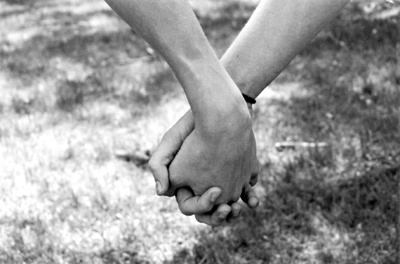All Nonfiction
- Bullying
- Books
- Academic
- Author Interviews
- Celebrity interviews
- College Articles
- College Essays
- Educator of the Year
- Heroes
- Interviews
- Memoir
- Personal Experience
- Sports
- Travel & Culture
All Opinions
- Bullying
- Current Events / Politics
- Discrimination
- Drugs / Alcohol / Smoking
- Entertainment / Celebrities
- Environment
- Love / Relationships
- Movies / Music / TV
- Pop Culture / Trends
- School / College
- Social Issues / Civics
- Spirituality / Religion
- Sports / Hobbies
All Hot Topics
- Bullying
- Community Service
- Environment
- Health
- Letters to the Editor
- Pride & Prejudice
- What Matters
- Back
Summer Guide
- Program Links
- Program Reviews
- Back
College Guide
- College Links
- College Reviews
- College Essays
- College Articles
- Back
Beauty Through the Eyes of the Blind
Beauty. How vague. How ambiguous a descriptor. Beauty seems to have two fronts; that which is hardwired into us from birth, and that which we learn from our environment. Just as heterosexual individuals are genetically conditioned to find the physical form of the opposite sex visually appealing (and vice versa for homosexual persons), such is it that all humans (barring a small percentile of mentally unstable aberrations) are seemingly mentally “programmed” to find beauty in certain objects and interties, common to all mankind. But don’t we all seem to jump to the conclusion that “beauty” is a descriptor for things of great optical appeal? While this is primarily the case, I know that it is hardly restricted to such. To me, music, smells, the voice of a loved one, the feel of sand on bare feet – all of these can be “beautiful”.
Is the understanding of beauty attainable by the blind? One would be no less than a fool to think otherwise. While blind persons can’t physically “see” in the sense that most do, they most certainly are privy to the informational input from their other functioning senses. Sight allows us to see the world physically, but this brings up a few questions. In the same way that a person void of the ability to taste would never enjoy the pleasure of tasting delicious foods, they would also be at somewhat of an advantage. If you could not taste, would there ever be any temptation to eat unhealthy foods? Ice cream, cake, and cookies all lose their allure when you remove the pleasure that their scrumptious tastes provide to the palate. This in mind, are not those who cannot taste at somewhat of an advantage to the rest of us in that they are able to gladly feast upon food repulsive to most everyone else? They are able to reap the benefits of consuming solely nutrient-dense foods, however unappealing the taste, because taste is simply not a relevant factor to them.
That in mind, could the same not be true for blind individuals with respect to the perception of beauty? Let’s look at a hypothetical situation in order to illustrate this.
Let’s say that a sightless person goes out on a date with someone they have never met. The blind woman’s date is, to mince words with political correctness, “physically underprivileged”. Despite his substellar appearance, this man is a total gentleman of fairy-tale proportions. He is polite, cordial, understanding, sweet – you get the picture. So let us fall under the assumption that their first date goes well, so it is naturally followed by a second, and then a third, etc. Eventually, the budding relationship blossoms and culminates in a happy marriage.
What are the odds, that had the lady in the previous example not been blind, she would have not even gone out with the facially unfortunate man in the first place, much less have pursued a long-term relationship and eventual matrimony with him? I’d say slim to none. In this particular case, did not both parties mutually benefit from the superficial disadvantage of the woman’s blindness? She was able to see past her beau’s phenotypic shortcomings and instead focus her attention on the person that he was on the inside.
So this poses the question: does the disadvantage of blindness allow its sufferer to achieve an alternate and inverse advantage simultaneously? What does beauty look like to someone who has never seen anything with their eyes at all? How would they define beauty? Well, I personally think it would go something like this: “Beauty is the characteristic of an inanimate object or living entity that incites pleasure in the observer, via any of the working sensory inputs.” How does this definition measure up to the stereotypical concept of beauty that most of us hold?
In all honesty, it seems to me that those of us fortunate enough to be blessed with sight often take for granted the unbelievable window that we have to the world of beauty. However, it must not be overlooked that oftentimes this window can be very restricting, as we saw not only to our perception of what is and isn’t appealing, but also to what really matters. How can we justify losing sight of the really important things when those who never had it in the first place can seem to understand it so well?

Similar Articles
JOIN THE DISCUSSION
This article has 0 comments.
